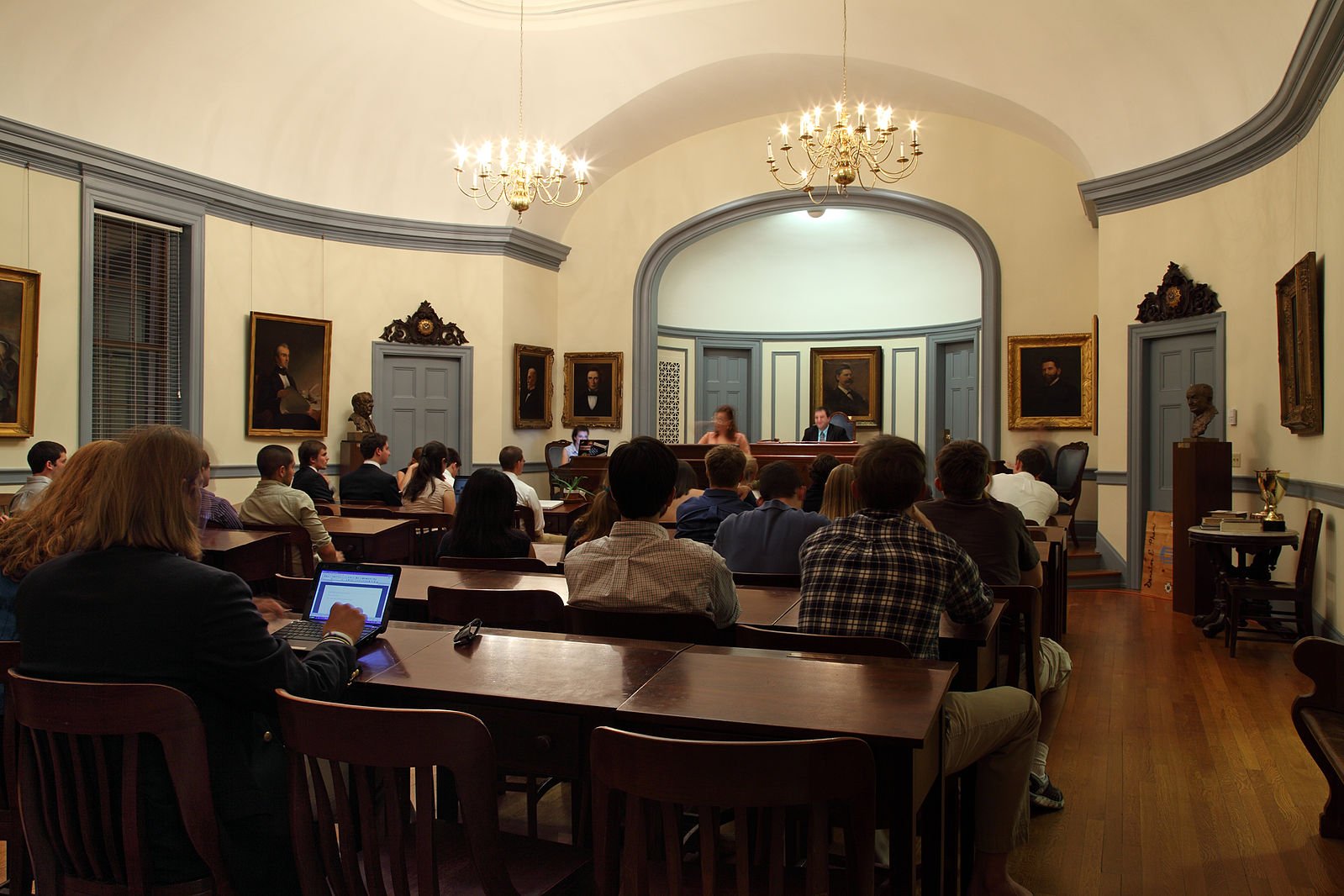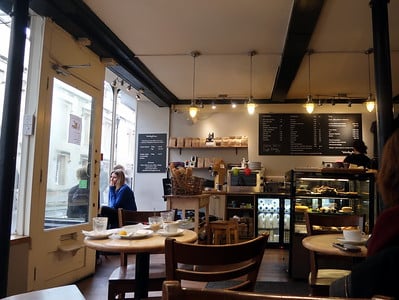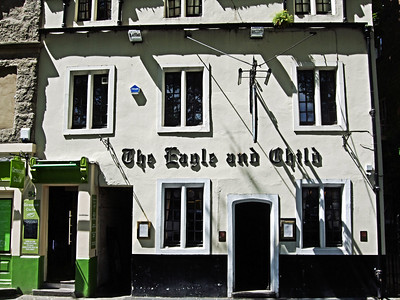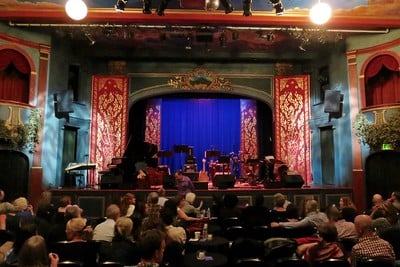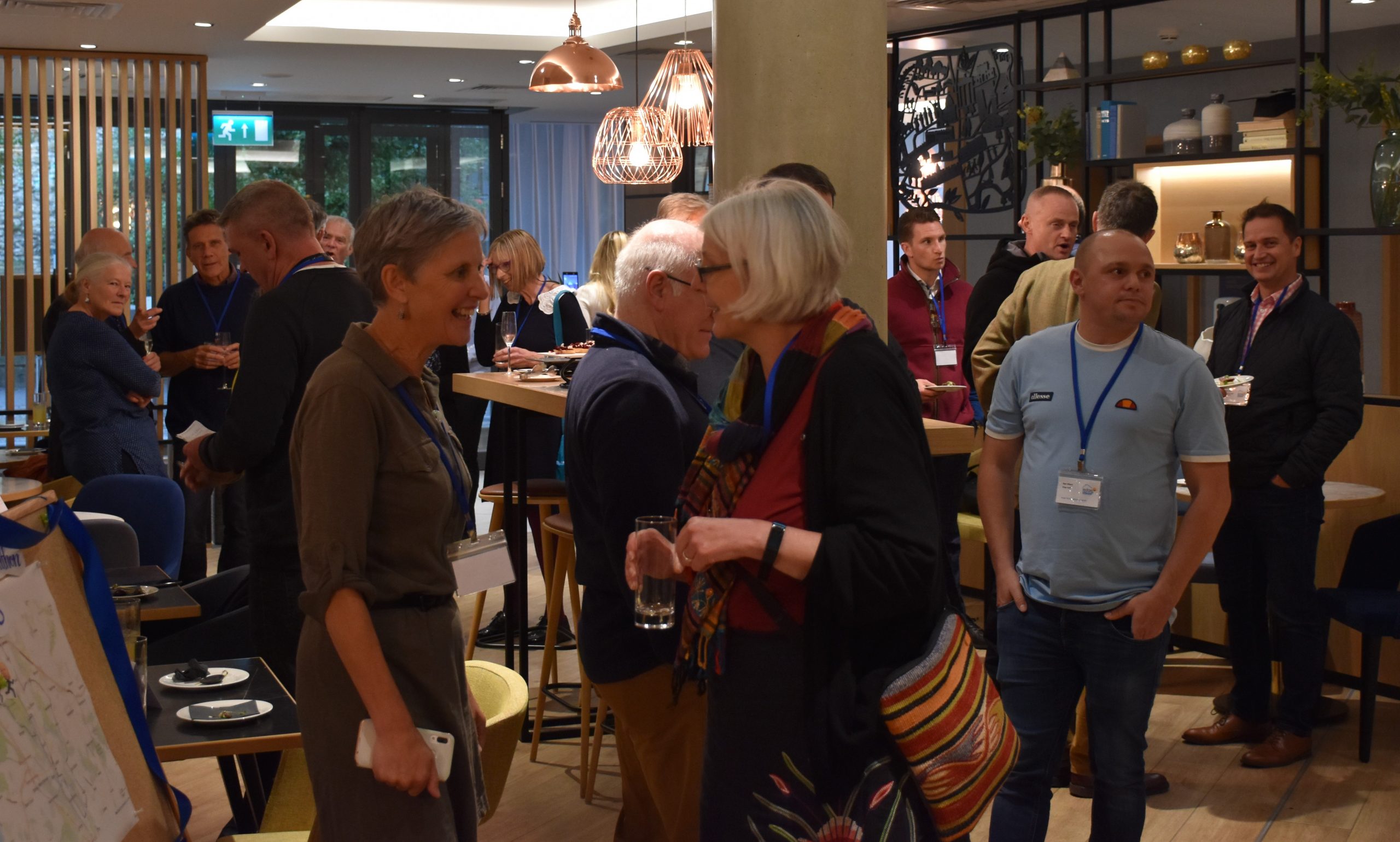It’s always worth joining at least one society during your time at Oxford. Whether that may be sports, music, drama, politics, student journalism, or joining a national society, there is nothing that you can’t do. You might try a new sport like modern pentathlon, or find a new interest in psychedelics at Psychedelic Society, or connect with people of shared faiths and backgrounds. Oxford’s collegiate system may seem claustrophobic at times, but there is nothing stopping you from branching out and meeting people from other colleges. Your CV may even look that little bit better.
Sports
At school, you may have been forced to play football, rugby or netball. But at university, the world’s your sportster. The range of sports you can get involved in is vast, ranging from rowing to quidditch. The one thing that is certain about university sports are the friends you make; I’ve had one friend wisely point out that colleges are just a bunch of people thrown together into one arbitrary setting, whereas your friendships from sports clubs and other societies are more genuine because you have shared interests. So, what is a Blue? What is “shoe the tabs”? What are Cuppers? And what on earth are you waiting for?!?! Here are the answers to all your sporting dreams:
University sports
Sport at Oxford has a rich tradition. Oxford University is the only university to have won the FA Cup, and many Olympians representing Team GB previously studied at Oxford. There is pretty much a sport for everyone-volleyball, rugby league, chess, surfing, and so much more. Our main sports facilities are at Iffley Sports Centre, though many teams train and play at other sites such as at college grounds and local clubs. Most university sport clubs will compete in BUCS (British Universities and College Sports) leagues every week, normally on Wednesdays and followed by a big sports social night at Park End. The pinnacle of the sports calendar for any club is Varsity, which is when you play Cambridge. The aim, of course, is to beat our rivals. Winning Varsity is more informally known as “shoe the tabs” – ‘shoe’ is an old verb for beating someone and ‘tab’ is derived from ‘Cantabridgian’, the Latin for a Cambridge student.
If you play for a highly competitive sports club such as rugby or tennis in a Varsity Match, you will be awarded a Full Blue. You are awarded a “Discretionary Full Blue” should you meet certain criteria that varies in other sports like powerlifting and ice hockey, and a Half Blue for other sports such as eton fives or ultimate frisbee. These awards are special certificates that might get you some nice perks, such as eligibility to buy a Blues blazer, special funding from certain colleges, and just general Oxford clout. Sport clubs generally welcome players of all abilities and backgrounds, but sometimes you may have to trial to join a sports club, eg. football. Look up the sports club you would be interested in joining, and get messaging captains and club presidents!
College sports
If you would not like to commit yourself to university-level sports, there is still the opportunity to play sport in a more laid-back environment at college-level. The scope of sports on offer are still varied, but perhaps more limited. There are opportunities to play college football, rugby, hockey, rounders, polo, and orienteering, to name but a few. Some of the colleges also have mixed teams, such as hockey, and some colleges have joined-up teams, like Merton and Mansfield play as one team, for example. Cuppers is the name given to the college sports tournaments; they may happen over a whole term or over one day. College rowing tends to be the toughest college sport to get involved in, but it is also seen as the most traditional and exciting one. College sports are probably the best way to escape the load of academic work and get to know the people within your college.
Socials
The highlight of playing sports at Oxford are, more often than not, the socials that come with them. Some socials may seem like intense drinking events — and they certainly are sometimes — but a good night out is inclusive of non-drinkers as well. Sport clubs normally organise ‘crewdates’ before Wednesday nights at Park End, pairing up men’s sport teams with women’s sport teams (more below!). Most colleges will also have club socials; about half of the people who go to college sport socials do not even play sport! Sport teams also spend a lot of time at Vincent’s Club (a sport members’ club better known as Vinnie’s) on the High Street for other socials, while Atalanta’s is a sports society that works to promote women in sport. The Atalanta’s/Vincent’s end of year cocktail drinks is an event to look forward to in the calendar year.
Important Oxford Sporting Fixtures
Some Varsity fixtures throughout the year are especially important. The Varsity Trip every December is definitely one to look out for. This is when novice skiers and experienced skiers from Oxford University and Cambridge University essentially shut down a ski resort in France for skiing, watching the Varsity race, and après ski in December. It is dubbed ‘the largest ski trip in the world’. Rudimental, Calvin Harris, and Tinie Tempah are just some of the acts to have headlined the trip. The rugby union Varsity Matches are also a big deal; they are normally played at Twickenham in December, but they were played in the summer in Leicester this year due to COVID. Next year’s Varsity will be played in spring, and it is hoped that the match will once again be played at Twickenham.
The Boat Race is the world-famous rowing race between Oxford and Cambridge that is normally broadcast on the BBC, and watched by thousands along the Thames’ river banks. This year’s Boat Race was held behind closed doors in Ely, and it is not certain yet whether next year’s Boat Race will return to London. The after-parties for both the rugby and rowing Varsity fixtures are certain to be lively.
Crewdates
Crewdates. What beats it? Crewdates are drinking-infused social events held in some of the shabbier restaurants around Oxford (no offence to my friends at Jamal’s). Normally, crewdates pair up a men’s sports team with a women’s sports team, but you may find yourself at a subject crewdate of some sort as well. They involve a range of chaotic games and loud activities, and cost between 10 and 15 quid, excluding BYOB prices (cheap wine is the way). My favourite theme was Barbarians and Librarians… but everyone turned up as a Barbarian because no one got the Librarian memo. So, without further adieu, the next few sentences will roll you through some of the games played at crewdates: “Pennying” is just a bunch of flying penny coins, and if one lands in your drink, finish it you silly fresh; “I sconce anyone who [insert absurdly embarrassing memory but do not go too far or risk getting a minute’s outside without your phone]” is Oxford linguo for Never Have I Ever; “Mister and Missus” is when you stand back-to-back to your compatriot and drink when you think you are more likely to do whatever your friend has called out. Crewdates are a nice antidote to the serious academia at Oxford, but if they don’t float your boat, don’t worry — nothing is ever compulsory.
Other sport and exercise
If you’re not looking to play Oxford sports, and prefer to do stuff yourself, Oxford has plenty to offer. BuzzGym and PureGym are the city’s two main 24 hour gyms, priced between £18 and £22 a month, but watch out for joining fees and peak times prices. You can also pay for a membership at Iffley Road Sports Centre. There are some great running spots around Oxford, like at Port Meadows, Uni Parks, and, if you are willing to go the extra distance, Whytham Woods. If you like going to watch football, Oxford United’s Kassam Stadium is a 20-minute cycle from the city centre. If you prefer non-league football to League One football, Oxford City’s stadium is a shorter cycle from the centre.
Oxford Union
Is it worth it?… is the question on everyone’s lips. The ‘hacks’ (let me try to summarise what they are first. ‘Hacks’ are Union members who spam you with Facebook messages begging you to vote for them. They come up with a series of pledges on how they will make the Union more progressive, but the truth is that things usually turn sour) will tell you it is worth paying the £150+ fee. Your friends will probably advise you against joining it. So, before you make your decision, I will try to give you a flavour of what to expect, having paid the fee myself.
The Union is the university’s main debating society; it is not the Student Union (SU), and the Union is in fact independent of the University. The speaker cards are great, in fairness. They have had the likes of Diego Maradona, John Kerry, Akala, A$AP Rocky, Dr Fauci, Jeremy Corbyn, and North Korean refugees in the past. The Cambridge-equivalent is poor at best. If you like debating, sending way too many messages to people you barely know, and pretending to be the king of networking (and snaking), then you might even want to join the Union’s committee. The Union also has a quite incredible library and a pretty saucey bar which you only have access to if you become a member. But if you don’t mind watching some of the Union’s talks over Youtube rather than in-the-flesh, then it’s probably best you save your £150 or so for some good times out in Oxford. You will not be missing out on much and the political frenzy can be overwhelming. If you do become a member but don’t like the sound of hacks, it’s probably best you keep your head low. Word does tend to get out if you are a member, however. Good luck deciding, but do have a think about it before you do pay the fee.
Politics
Most of the country’s prime ministers and many of the world’s most important politicians studied at Oxford, so Oxford politics could not be more relevant. The bureaucracy in some of the university’s political societies can be exhausting, but there’s no better place to show off your party colours than in the university’s political societies.
Oxford University Conservatives Association
The OUCA is here to disprove the perception that UK universities are left wing. You are sure to drink some port at OUCA socials and meets. The society also runs charity work, hosts special speakers, and campaigns for the official party.
Oxford University Labour Club
OULC hosts popular socialist discussions and speakers. The Club also has its own publication ‘Look Left’. OULC’s cornerstone moment in the week is ‘Beer and Bickering’.
Oxford University Liberal Democrats
The OULD is the oldest of the three political societies. Their weekly debate social is called ‘Spirited Discussions’ and they occasionally join up with other societies to host talks. The society is boosted by the fact that Oxford East’s MP is Anneliese Dodds, a Lib Dem politician.
Student Journalism
Whatever your subject, student journalism has something for you. With sections ranging from sports to tech, Oxford’s historic publications are full of opportunities. Even if you are not interested in writing for them at all, it’s still a great idea to follow newspapers on Instagram or Facebook so that you are up-to-date with the latest information. Some articles are so groundbreaking that national newspapers steal ideas. The university’s newspapers have no official political leaning. Cherwell, for example, has events on offer for students through the year. If you are interested in writing for one of them, look up how to pitch an article or how to apply for editor positions on each of the newspapers’ respective websites. Here are some of the best known ones:
Cherwell
Cherwell is one of the country’s oldest independent student newspapers, founded 121 years ago. The paper contains a range of sections. The poet W.H Auden and media tycoon Rupert Murdoch are but some of its past contributors. Stories often reach national prominence.
The Oxford Student
The OxStu is another general newspaper with a range of sections. Like Cherwell, The OxStu‘s main rival, they publish print editions every two weeks, and they also post articles online. The paper was founded by the SU in 1991 and maintains a relationship.
The Isis
The Isis is a termly magazine and the longest running student publication in the UK. The magazine is essentially the student hub for creative writing and art, giving particular focus to fiction, poetry, and culture. They also run interesting events throughout the year. Sylvia Plath and Terry Jones are some of the magazine’s former writers.
The Oxford Blue
The Oxford Blue is an online-only student newspaper, founded in 2020. The newspaper’s “Global Affairs” section gives voice to international news.
Onyx Magazine
Onyx is a creative magazine for Black students at Oxford. The magazine’s first issue was released in 2018, and it has branched out to bookshops around the country. Its meteoric rise has been quite sensational, and its next publication is eagerly awaited.
Other Oxford Publications
There are a few other publications in Oxford, some which have come and go. Related to student journalism, Oxford Media Society is a hugely popular society that has welcomed speakers like Lewis Goodall from BBC Newsnight. The Tab, which was launched at Cambridge Uni and has since become a company providing student news at many universities across the country, had its short stint in Oxford. As there has clearly been a recent drive in student journalism at Oxford, there is clearly potential for publications to grow.
International, ethnic minority, religious and LGBTQ+ societies
Oxford has a range of inclusive societies for people from a range of different backgrounds. Oxford’s Afro-Caribbean Society (ACS) is one prominent society which organises several exciting events through the year, including a Ball. There are dedicated societies for a range of nationalities. The Oxford LGBTQ+ Society is the largest higher education LGBTQ+ Society in the country with over 2500 members; its members often frequent exciting nights at Plush, plus other non-drinking Society events.
Image credit: Caroline Culler via Wikimedia Commons (CC BY-SA 3.0)




